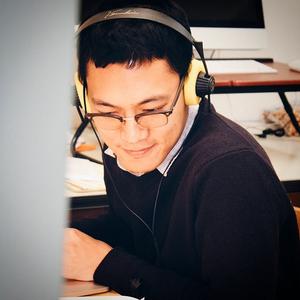JungHwan Yang joined the Department of Communication in the Fall of 2017, coming from the University of Wisconsin in Madison. According to Dr. Yang, his research examines "how media affect their users in this increasingly fragmented, ever more customizable, and socially connected media environment where people can generate their own content and share their views." His work helps us understand how people access and respond to political information, and he employs various computational and statistical methods to examine these important topics. We're excited to have Dr. Yang in the Department, and in this Spotlight we invited him to answer some questions about himself and his work.
~~~~
How did you become interested in social media users’ political interest and issue positions?
I started studying political conversations on Twitter while I was in graduate school. I read thousands of tweets to figure out how people talk about Obamacare. It was one of the most controversial issues then. The initial goal was simply to find people who support/oppose Obamacare. Quickly I realized a substantial portion of people on Twitter use sarcasm and the messages are pretty ambiguous. It was really hard to make sense of some tweets even when I discussed the messages with my friends. There were several millions of tweets, it was just too much data! That’s when I got interested in testing different computational methods to identify Twitter users’ positions on Obamacare. Plus, I had a wonderful mentor, Alex Hanna, who was also a graduate student in sociology then; now a professor at the University of Toronto, who showed me her programming magic.
You just finished teaching an "Advanced Topics" Course (CMN 496) this Spring that focuses on the computational tools for studying communication. What can students expect to gain from learning computational analysis?
Students who enroll in CMN 496-Introduction to Communication Analytics- are expected to learn how to use data to answer the questions they have. They learn how to find interesting questions and how to answer those questions using data. I teach a series of basic data analysis, so they can summarize, subset, describe, and visualize data. They will also learn how to scrape data from social media and websites and to analyze a large number of texts. Of course, in the end, students will have intermediate knowledge about R programming because we use R for everything.
Why do you think computational analysis is an important skill?
I think this is a powerful skill to learn because the field, both academia and industry, is undergoing a "computational shift." It is not only good to spice up your resume, but also it is a very practical tool to work with. Also, it is hard to learn once you graduate from college. More importantly, it is fun!
What is one thing you would want undergraduates to know about your research, findings or role as a professor?
I study political astroturfing, a hidden online political campaign where people use fake social media accounts to share biased political information to distort the overall political social media space. This line of work sometimes makes me feel like I am doing investigative work. It is so fun to discover something unusual or even sketchy behavior of people using digital trace data.
That does sound exciting! How about non-research related: what is something you would like to share about yourself?
I am also a big indie pop fan, such as twee pop, C86, pop punk, post-punk. I had my own radio show called One, Two, Twee! at WSUM in Madison, WI before I join Illinois.
Last question: as the newest faculty member, what are your goals for the Department of Communication?
I enjoy working in a research group because you can meet many great people with different strengths who have shared goals. It is also a great work environment for interdisciplinary research like I am doing. I hope I can start a small research group at the end of the next academic year.
Thank you to Dr. Yang for taking time to answer our questions. You can find more information about his research and teaching here.
